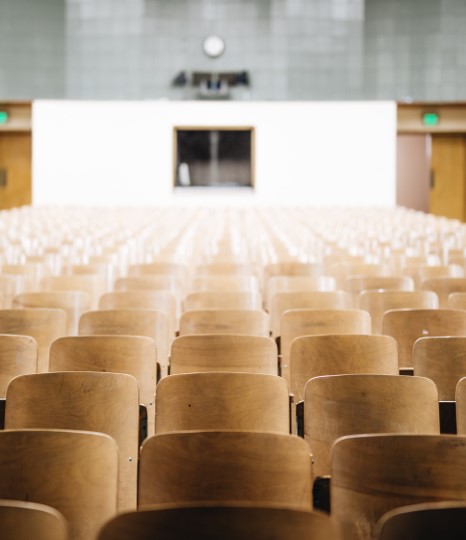‘Ghost lectures’ behind closed doors: How Covid-19 changes academic teaching – an empirical study
Researchers Involved
Prof. Dr. Heiko Hausendorf
Dr. Kenan Hochuli
M.A. Alexandra Zoller
research areas
timeframe
2021 - 2022
‘Ghost lectures’ behind closed doors: How Covid-19 changes academic teaching – an empirical study
Members of the University of Zurich left their place of work and study almost overnight in spring 2020 – and met again on a digital platform. Where we used to meet friends and relatives, there were now lectures and seminars. Using exemplary video sequences from UZH teaching, we look at the special features of interaction on digital platforms – and show how new and sometimes unusual forms of interactive interaction have emerged here.
Zoom and teams are the two platforms most frequently used by UZH members. They bring their users together on “face wall” where anyone can be seen via webcam.
On this interface, we are dealing with a constellation that cannot be created without technical-medial aids.
In the context of the P sub-project “Reflection of digital teaching” (directed by Kenan Hochuli) and the completion of two doctoral theses (by MA Johanna Jud and MA Alexandra Zoller), we are investigating how communication functions under these circumstances. We analyse video sequences that shed light on how participants establish a social situation, manage question-answer sequences and increasingly develop rituals that are adapted to the technical specifics.
Background
Shift of the university lecture from lecture halls to digital space(s); variety of digital tools and formats enabling more or less interaction between participants.
Research Questions
How does the current situation around Covid-19 affect the verbal and multimodal manifestation of university lectures regarding the organization of space, body, time and interactive co-presence?
Project Aim
The aim is the analysis of current situation regarding socio-linguistic theories of the re-figuration of institutional communication and spaces as well as the elaboration of basics for the development of a “best practice” for university teaching in the intersection of physical and virtual co-presence.



